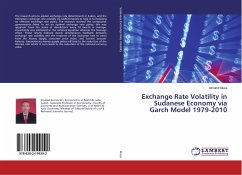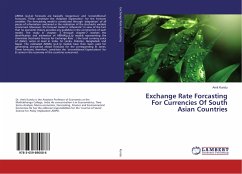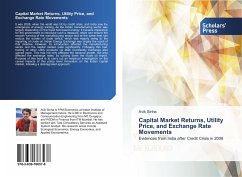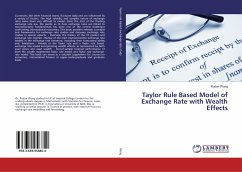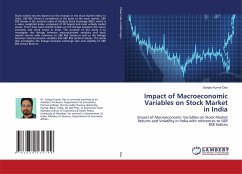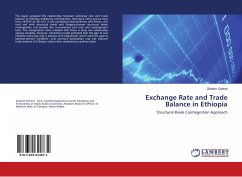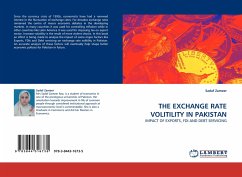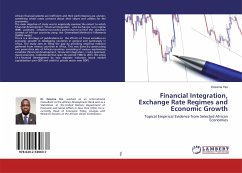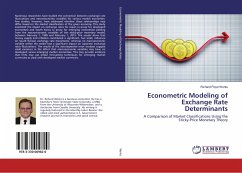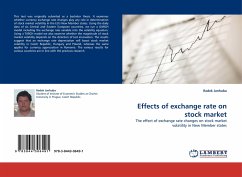
Effects of exchange rate on stock market
The effect of exchange rate changes on stock market volatility in New Member states
Versandkostenfrei!
Versandfertig in 6-10 Tagen
32,99 €
inkl. MwSt.

PAYBACK Punkte
16 °P sammeln!
This text was originally submited as a bachelor thesis. It examines whether currency exchange rate changes play any role in determination of stock market volatility in the EU's New Member states. Using the daily data of six Central and Eastern European countries, we run a GARCH model including the exchange rate variable into the volatility equation. Using a TARCH model we also examine whether the magnitude of stock market volatility depends on the direction of last innovation. The results suggest that an exchange rate depreciation will boost stock market volatility in Czech Republic, Hungary a...
This text was originally submited as a bachelor thesis. It examines whether currency exchange rate changes play any role in determination of stock market volatility in the EU's New Member states. Using the daily data of six Central and Eastern European countries, we run a GARCH model including the exchange rate variable into the volatility equation. Using a TARCH model we also examine whether the magnitude of stock market volatility depends on the direction of last innovation. The results suggest that an exchange rate depreciation will boost stock market volatility in Czech Republic, Hungary and Poland, whereas the same applies for currency appreciation in Romania. The various results for various countries are in line with the previous research.



